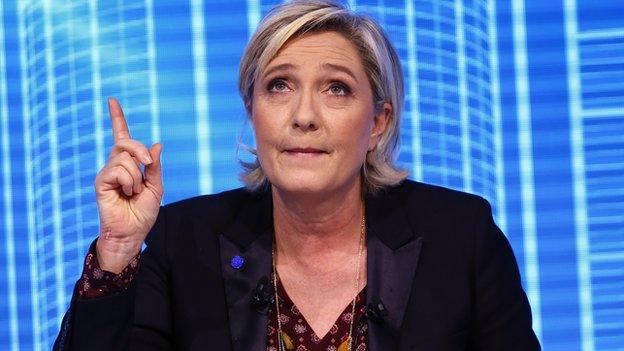France election: South-west voters eye Brexit with envy
- Published
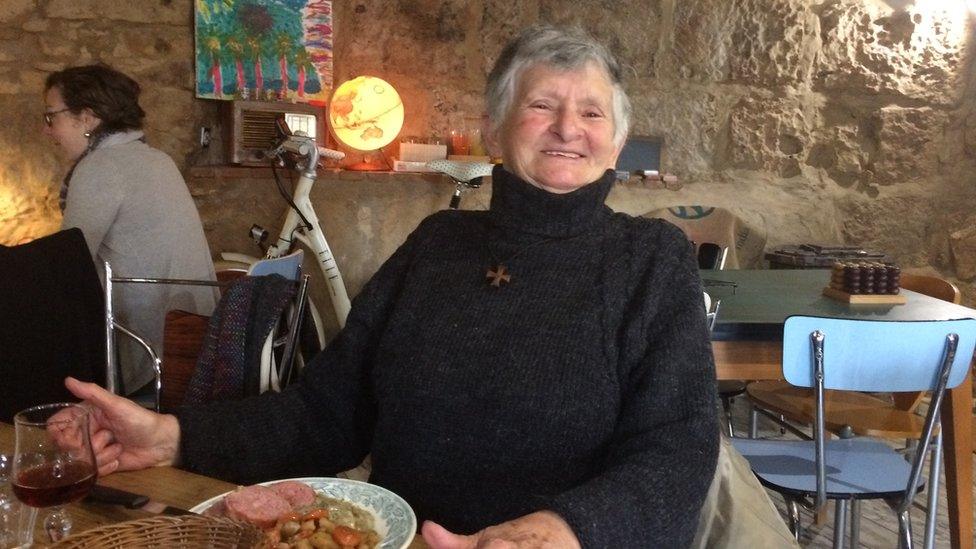
Pensioner Genevieve is excited to meet someone from "Brexit Britain" and wishes France could also leave the European Union
To find out what French voters make of their forthcoming presidential election, I am following the route of the Tour de France and this week I've reached the south-west of the country.
Pensioner Genevieve has just ordered the plat du jour as I walk into the beautiful Veloc cafe in Perigueux and, as this is her birthday lunch, she's telling the cafe owner with a flirtatious wink, she's already got her eye on one of his bottled prunes afterwards as a "special little treat for a special little old lady". She turns her infectious smile to me.
"Ooh!" she says when I tell her who I am. "How lovely, a lady from Brexit Britain. I think Brexit's great. I'd like France to get out of Europe so she could find her own identity again."
All the way down the Dordogne valley, Britain's influence is hard to ignore. The region is home to so many British expats that it's often dubbed Dordogne-shire.
They may not have got the French eating Marmite quite yet but they certainly have got the locals chewing over the results of last June's referendum and wondering what a Frexit might taste like.
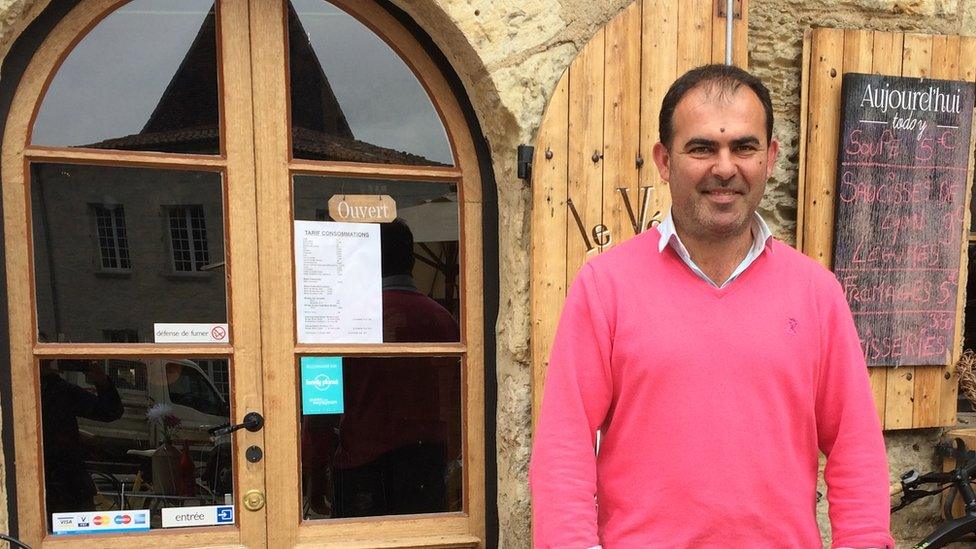
Unlike some of his customers, cafe owner Christophe Constantin feels thoroughly European
Cafe owner Christophe Constantin shakes his head firmly when I ask whether he sees France's future outside Europe.
Since opening his cafe six months ago he explains, 27 different nationalities have walked through his door. And he feels thoroughly European, he adds.
His neighbour Thomas listens in as he sips coffee at the bar. "I think there's a strong current pushing for France to leave the EU actually," he says.
"I think there's a strong possibility that we'll be out - perhaps not in these elections but maybe after the next. The EU needs to reform to avoid this total divorce."
Far-right leader Marine Le Pen has made renegotiating France's membership of the EU one of her key campaign promises. She has vowed to pull France out of the euro and to hold a referendum on a new deal.
Since France has a constitution that states that the "Republic is part of the European Union" however, any Frexit would require a constitutional change.
The two uniformed men on the street opposite the cafe laugh when I suggest that it is unlikely that the Front National would be able to get such a constitutional change approved.
"Don't worry, we'll watch how Britain does it first," says one.
Back inside the cafe, Genevieve's charm has won over Christophe and she's contentedly tucking into her freebie birthday prune. She beckons me over.
"I'm voting Le Pen," she says. "Because she wants to close the borders, just like Trump is doing in America."
She licks the last of the syrup from her spoon. "Let's make France great again!"
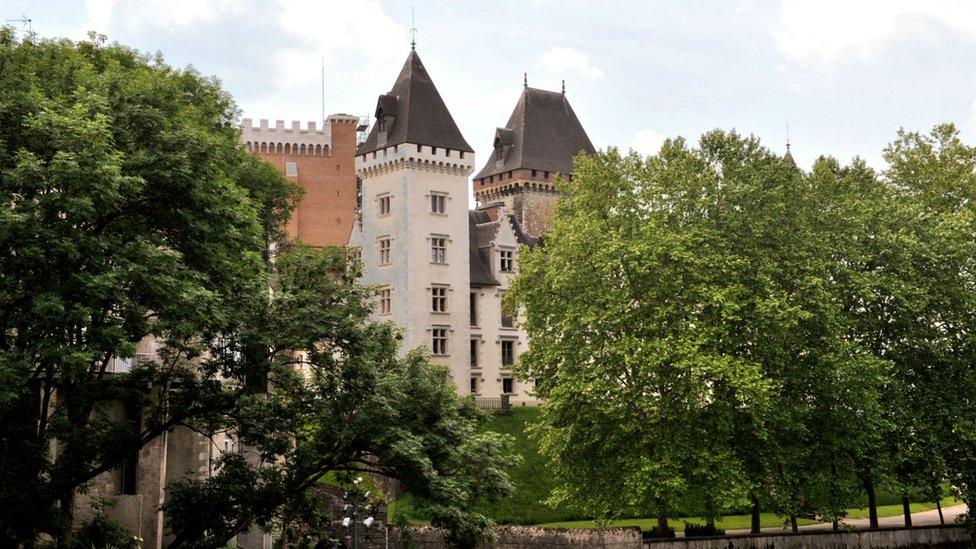
The castle at Pau, one of the stages on the route of the Tour de France cycling race
Three hundred kilometres (186 miles) further south and in his office in Pau's town hall, centrist Mayor Francois Bayrou looks out on to the imposing snowy peaks of the Pyrenees.
For years, he's been trying to tell the French that they have been imprisoned by a two-party system - between a Left and a Right that will never concede there might be a third way.
"But that has to change now," says Mr Bayrou who has stood as a centrist candidate in the last three presidential elections.
"We need to unite people and we need to reform. The Socialist Party is decomposing and the Republican right is in civil war."
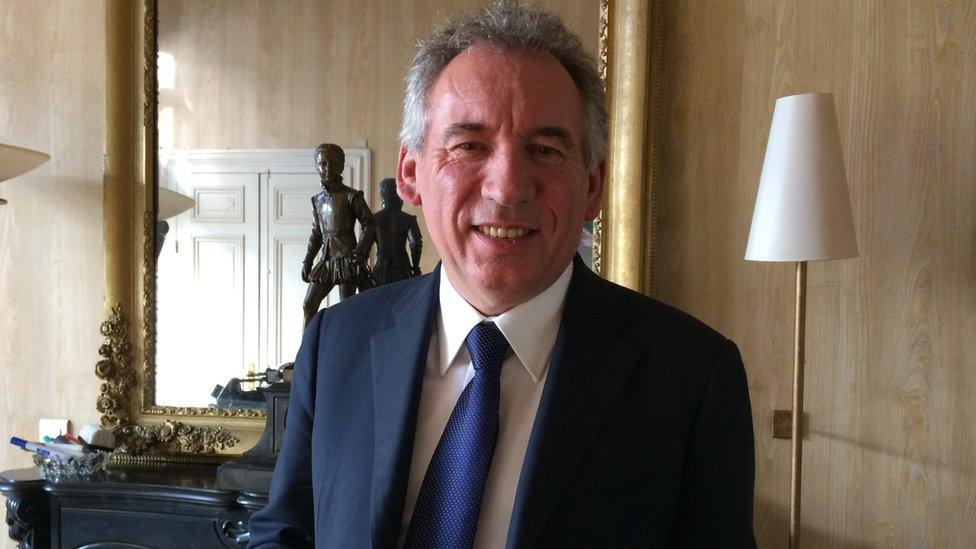
Francois Bayrou, a former centrist presidential candidate and Mayor of Pau, says he will now support Emmanuel Macron
This year it won't be Mr Bayrou who is representing the centrists. It is the younger, staunchly pro-European Emmanuel Macron with his brand new movement En Marche.
Emmanuel Macron borrows creeds from left and right and his centrist approach has already won him more than 100,000 supporters nationally but it has left others suspicious and confused.
"What does he really stand for?" asks a woman on her way to work. "I'm not sure I trust him."
"I will probably vote Macron, but with no enthusiasm or conviction," says a retired man strolling through the park. "But maybe we should try something a little bit different."
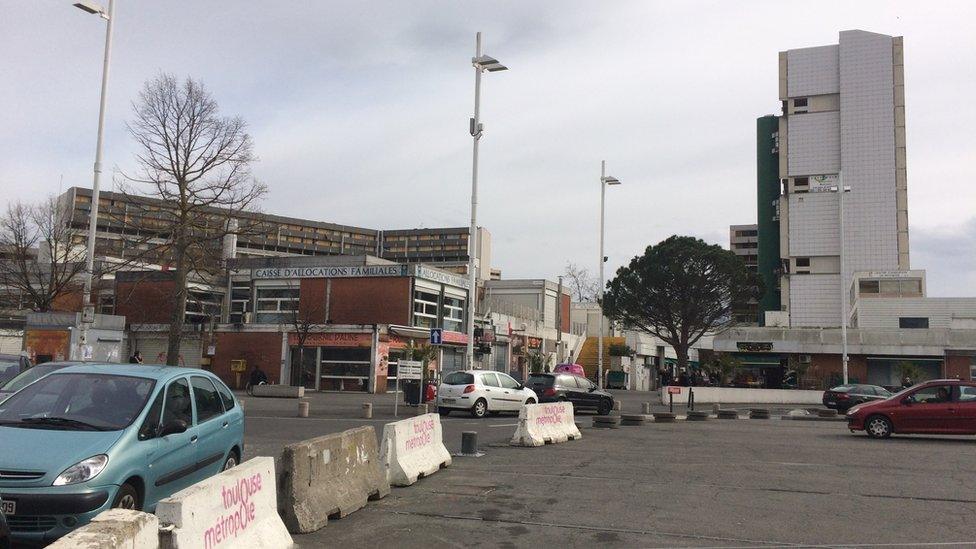
Residents of Mirail, a poor suburb of Toulouse, believe the neighbourhood carries a stigma that is hard to live down
My next stop is Mirail, a poor and largely immigrant suburb of Toulouse. In this "sensitive neighbourhood," as the French call it, they need a political solution that is radically different. The police won't even come here let alone the politicians.
"If you want to talk about Islam or about terrorism, I'm off," warns a young man in a grey hoodie at Kada's burger stall.
"We need to talk about jobs - that's what we need to talk about - work is the problem here, not Islam."
His friend shouts over him. "Politicians know damn well what we need. They've known for years.
"Why would I vote when no-one represents my neighbourhood or me?"
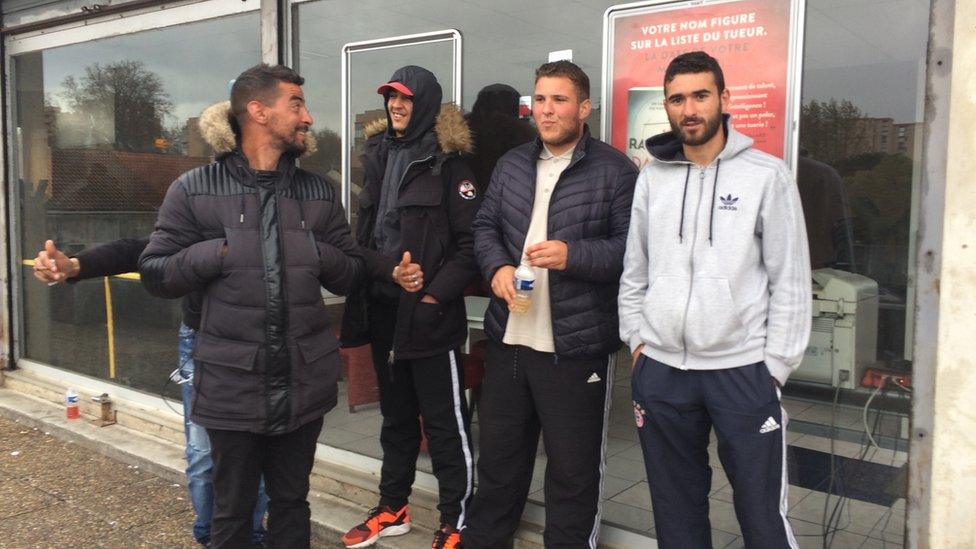
Young men in Mirail want jobs and opportunities and a president who could offer them those
Kada, who runs the burger stall, nods at the groups of men clustering round him.
"If you come from a sink estate like this, believe me you're stigmatised. But give us jobs and watch what we can do."
Kada believes it's his civic duty to vote but he understands why so many of his customers won't be voting.
"Look at this social collapse, this poverty. People don't want us to feel as French as everyone else. I want a president who can lift us up from all this."
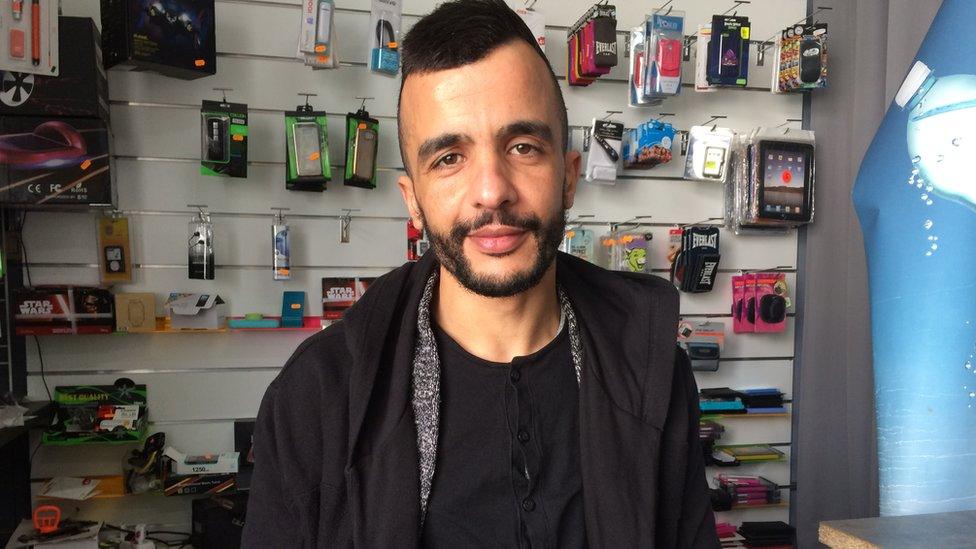
Shopkeeper Klams says he has never voted and has seen no sign of change in 20 years
In his telephone repair shop, Klams sorts through tiny screws on his workshop counter as he hums along to his latest rap song about divisive politics.
Although he has left-wing sympathies, he has never voted because, as he says, even the Socialists seem to want to clamp down on Muslims - always banging on about Muslim women wearing headscarves.
He searches my face for traces of irony when I suggest that perhaps he needs to vote so his voice will be heard.
"In 20 years, nothing's changed in this neighbourhood," he says. "Politicians just forget us the minute the elections are over."
He picks up a screwdriver. "That's why I vote God."
You can listen to Emma Jane Kirby's full radio reports as she tours France on BBC Radio 4's PM programme.
- Published21 March 2017
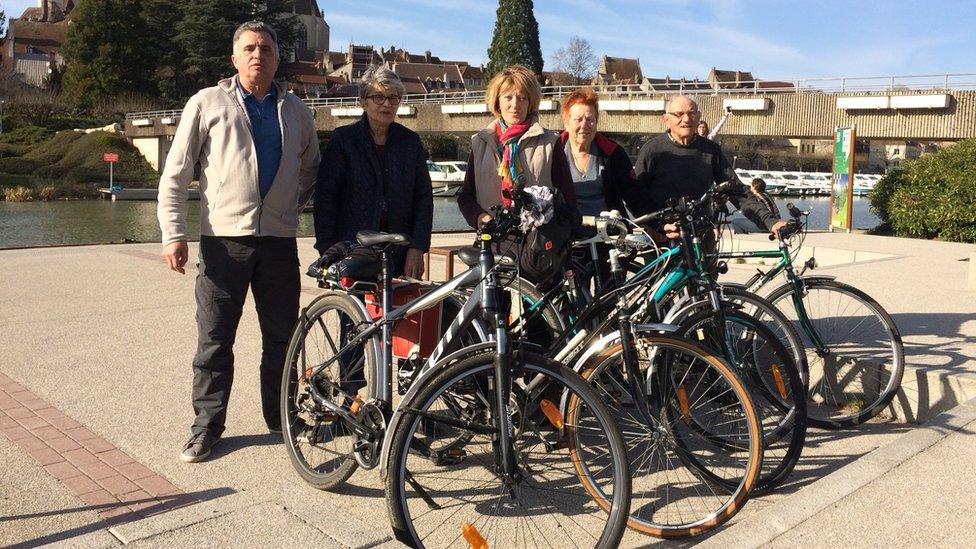
- Published15 March 2017

- Published8 March 2017
